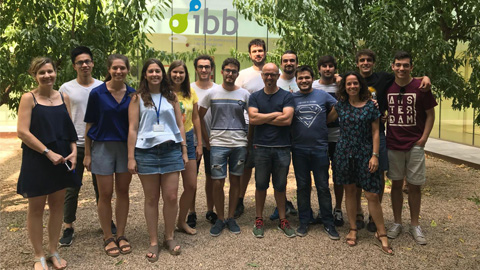Crowdfunding campaign for new Parkinson's treatment

25/09/2019
The project for the development of SynuClean-D as a therapeutic molecule to be used in treating Parkinson's disease is led by Salvador Ventura, researcher at the Institute of Biotechnology and Biomedicine (IBB) and at the Department of Biochemistry and Molecular Biology at the Universitat Autònoma de Barcelona (UAB).
Parkinson's disease affects more than 7 million people worldwide. It is the second most frequent neurodegenerative disease after Alzheimer's and currently cannot be cured. It is characterised by an accumulation of protein deposits in the dopaminergic neurons (those producing dopamine). These deposits, or aggregates, formed mainly by the alpha-synuclein protein self-assembled into amyloid fibers, are the main causes of irreversible neuronal damage and spreading of the disease throughout the brain.
After analysing over 14,000 molecules, Salvador Ventura and his team identified SynuClean-D and demostrated its capacity to inhibit alpha-synuclein aggregations and break the already formed amyloid fibers, thus preventing the onset of the process leading to the disease and reverting any neurodegenerative processes which had already begun. The studies were conducted with human neuronal cell cultures and with the Caenorhabdiis elegans worm, one of the simple animal models most used to study neurodegenerative diseases.
The crowdfunding project now presented in Precipita would allow researchers to advance in the study of the SynuClean-D properties in a more complex animal model, in which scientists would assess the efficacy and safety of the treatment. “If successful, we would be a step closer to clinical trials with humans and, therefore, with patients”, Salvador Ventura points out.
The researchers now hope to reach their target amount, 25,000 euros, in order to be able to begin this new research.